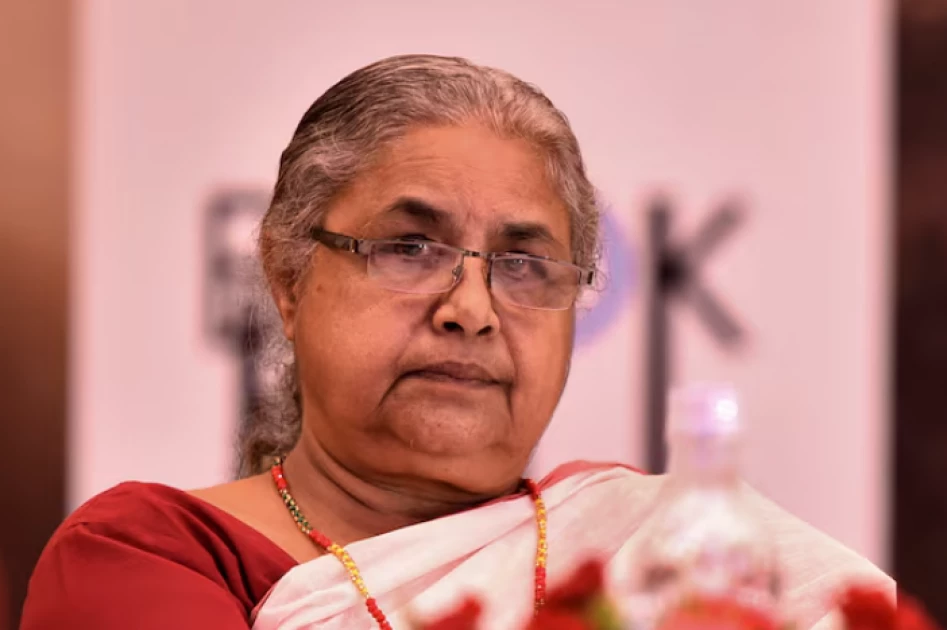From Nepal's first female chief justice to interim head, the rise of Sushila Karki

Nepal's former Chief Justice Sushila Karki looks on during the launch of her autobiography "Nyaya" at a ceremony in Kathmandu, Nepal, September 22, 2018. REUTERS/Stringer/File Photo

Audio By Vocalize
Nepal's first female chief justice, Sushila Karki, is set to
take charge as interim head, stepping in to run the poor Himalayan nation after
anti-graft protests plunged it into the worst political crisis in
decades.
Karki's appointment on Friday came days after violence led
to the deaths of at least 51 people and forced Prime Minister K.P. Sharma
Oli to resign on Tuesday.
A judge who displayed zero tolerance of corruption, Karki is
known for taking on powerful interests, in a stance that may have cost her the
top judicial post, as the government moved to impeach her less than a year into
her tenure.
The proposal was dropped after public pressure, but a
disillusioned Karki quit on her own.
"She faced an impeachment motion... but never lowered
her principles. She is the perfect choice to handle Nepal's crisis,"
Supreme Court lawyer J.L. Bhandari told Reuters.
This week's violence subsided after Oli stepped
down but authorities have retained prohibitory orders in some areas, with the
army patrolling the streets and key political leaders, now discredited, in
hiding.
It is against this backdrop that Karki, with limited
experience of politics or governance, has been temporarily handed the
leadership role.
"She is a good choice but will need a good team,"
Dipendra Jha, a Supreme Court advocate who worked with Karki for 10 years, told
Reuters.
The eldest of seven children, Karki was born in 1952 to a
farming family in the jute-growing village of Shankarpur and completed a
master's in law from India's Banaras Hindu University before launching her
legal practice in 1979.
As a student, she was associated with the Nepali Congress
party that dominated politics, and joined a 1990s movement against the
panchayat system, a centralised form of government that consolidated the king's
power, leading to a brief jail spell.
"Even as a child she treated everyone as equals and
encouraged us to go to school," her younger sibling, Junu Dahal, told the
Thomson Reuters Foundation in 2016, the year Karki became chief justice.
"We will try to establish a new beginning for the
country," she told Indian broadcaster CNN-News18 on Wednesday.


Leave a Comment